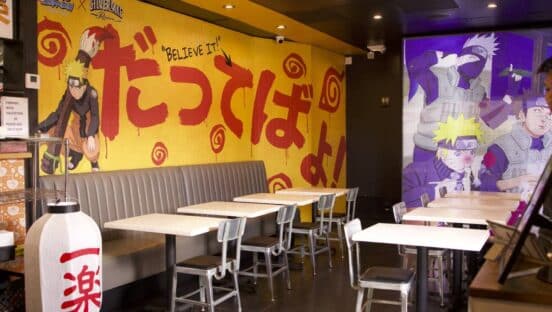>by David Haldane
Angel Toro learned about competitiveness in the military. It was competitiveness that helped him get through a twenty-one-year career in the U.S. Air Force. Competitiveness landed him a job at Pizza Hut, Inc., for which he’s been managing a store in Odessa, Texas, for the last nineteen years. And it was definitely competitiveness that made his store the busiest Pizza Hut in the nation during an eight-week contest last year.
“It was something I felt we could do,” said Toro, sixty-three, whose crew outperformed those of four thousand other restaurants nationwide to win the company’s Serving up a Million contest. “Everybody kicked in and got involved.” The rewards for doing so were substantial. The crew won a $100,000 check from the company’s corporate headquarters which, apportioned twenty ways, resulted in a $5,000 bonus per employee.
“When I first heard about the contest,” Toro said, “I called a meeting of the crew and told them it was an opportunity for everybody to make lots of money. They felt comfortable with what I told them, and so they all agreed.”
The gap between agreement and achievement, of course, can sometimes be a chasm. To help narrow it, the former career military man did lots of things. He started holding weekly rallies for his employees, posting numbers showing the store’s national standing in sales. He publicized the contest in the surrounding community to get the backing of his customers. And he offered major inducements to get them into the store.
“It became an obsession,” Toro says. “We were pretty competitive. If people bought pizza twice a week, our goal was to get them to come in four time a week.”
There were a number of specific ways in which they did that. Working in shifts involving two or three employees at a time, they went door to door leaving discount pizza coupons at about six thousand homes in two months. They also organized car washes in their parking lot, offering free auto cleanings while customers went in for pizza. Working mostly on weekends, the crew washed about five hundred cars. And they participated in several career days at local schools, during which they talked to students about their potential futures in pizza while distributing gobs of the stuff for free and discount coupons for more.
“They really rallied behind me,” Toro says of the immediate neighborhood surrounding his store, which numbers about forty thousand citizens.
The Pizza Hut crew also attended local Little League games, where they talked to lots of people, inviting them to come in for pizza after the game. They got the local YMCA to distribute discount coupons to members. And wherever Toro went, he says, he continued his practice of “getting down” with customers.
“I’m a hand shaker,” he says. “When you shake the peoples’ hands they remember who you are. If I’m gone for a day, my customers want to know where I am.”
As a result of all their efforts, Toro says, his employees “felt more like a team.” And the effect of that was to put them over the top: a 26-percent increase in their average of four hundred pizzas sold per day—a spurt that made them the number-one Pizza Hut in the nation.
“I think it was the enthusiasm of the team members,” Toro says in explaining the win. “Without that, you can’t do anything.”
The award ceremony was held at a local restaurant, where team members were entertained by mariachis in the parking lot following by a Mexican dinner. They were also given the company’s coveted Big Cheese award for, in the words of a press release, demonstrating “a strong commitment to making and serving great pizzas.” That award consisted of a foam-rubber hat resembling a slice of pizza.
The big prize, of course, was the money. Toro says it affected people in various ways. Some bought new cars or trucks. Several spent it on Christmas presents for their children. A few, he says, decided that they were too rich to continue serving pizza and left the company. Toro himself gave most of his share to his family. “I’ve got a lot of grandkids,” says the manager, whose five children span the ages from sixteen to thirty-eight. Mostly, he says, he learned a lot about motivation. The store hasn’t been able to hang on to its high sale figures. “We’ve slid back to where we started,” Toro says, “because the local economy got pretty bad.”
But he has plans to repeat some of the same sales tactics that proved so successful before. And on bad days, he says, the memory of their achievement goes a long way in boosting morale. “My people still think of it,” he says of the contest. “When we have down days, we think about it like a flashback.”
More than anything, Toro says, he has learned something about keeping employees motivated. “The morale of my employees has always been high,” he says, but this experience really confirmed the importance of keeping it that way. “When I see one of them down, I go and talk to them,” Toro says. “I like to keep this like a happy family. It makes them feel so good that they can achieve something like this.”
This article originally appeared in QSR Magazine. All rights reserved.









